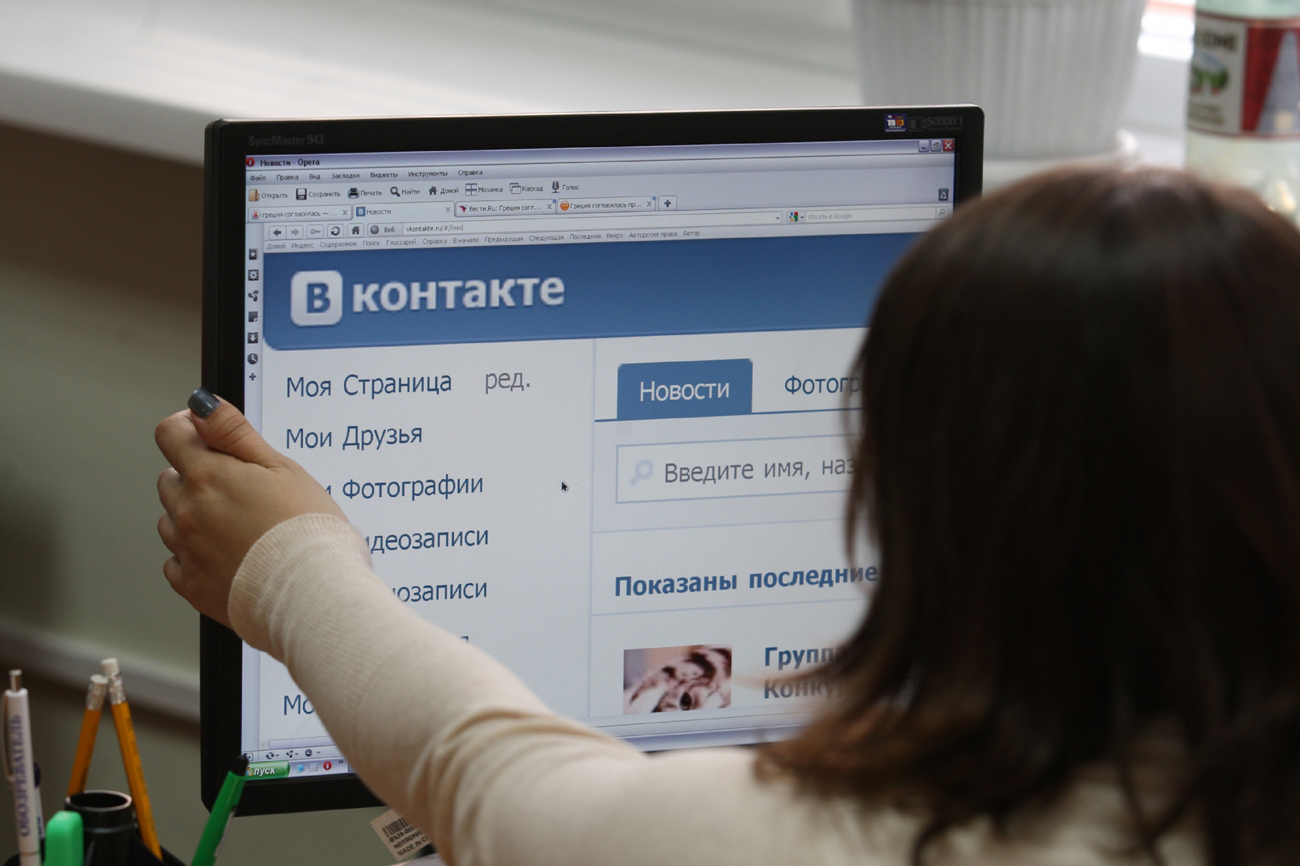
Pavel Durov, VK's founder, sold his shares in 2014. The decision was motivated by the request by the Russian security service (FSB) to hand over the personal information of users related to Ukraine's 2014 Maidan protests.
PhotoXPressWhen in October 2006 Pavel Durov, a 22-year-old philology graduate of St. Petersburg State University announced the launch of VKontakte (now known as VK), social networks in Russia were only beginning to gain popularity. Facebook still did not have a Russian-language interface and the most successful network was Odnoklassniki (“Classmates”), launched in March 2006 and oriented primarily toward adults looking to reconnect with schoolfriends.
Durov changed all that. In just a few years his social network surpassed Odnoklassniki, maintained its position after the launch of Facebook's Russian version and acquired the status of Russia's most popular site, which it still holds today. According to analysts at SimilarWeb, VK has 70 million separate users, making it the fifth most visited site in the world, although Alexa Internet places VK in 16th position.
Just like Facebook, VK was initially a project for students. Durov had started developing an online database for answers to exams and then made a site for students at his university. In the beginning VK was supposed to be called student.ru but then the developers decided to appeal to a broader user category and chose the name VKontakte.
The blue and white social network, created as a project for students, was destined to be accused of plagiarizing Facebook's idea. "The Russian Facebook makes no attempt to hide the fact that it's a clone; Vkontakte.ru almost exactly resembles Facebook’s design," wrote Mashable in 2007. Durov admitted that when he was developing VK he had studied Zuckerberg's experience, but stressed that his project is independent and, in his view, more complete.
"Sure, in the beginning VK looked like a Facebook clone, but mostly in its visual aspect, while in terms of functions it was more autonomous, crazier in the Russian way," said Maxim Kornev, professor at the Faculty of Television, Radio and Internet Technologies at the Russian State University for the Humanities.
Kornev is convinced that the free, although not always legal, content has been the main secret of VK's domination, especially in its early years: "Everything was accessible for free and on one resource: music, films, pornography. These things couldn't be found in Facebook or in Odnoklassniki,” he said.
Moreover, VK benefitted from its dedication to university and high school students, according to Yury Sinodov, founder of Roem.ru, a site that studies media businesses.
"It is easier to interest young people in using internet projects. Competitors such as Odnoklassniki orientated towards the older generation and that is why VK surpasses them in popularity," explained Sinodov.
He added that VK was helped by the fact that Facebook worked rather poorly in Russia in the first years of its Russian-language version (launched in 2008).
"Facebook opened slowly and it was inconvenient to use from a mobile phone," he said. VK was faster and thanks to this maintained its audience.
Pavel Durov, who since 2006 had not only been VK's founder and general director but also its ideologist and face, sold his shares and resigned in 2014. He said that the decision was motivated by the unacceptable request by the Russian security service (FSB) to hand over the personal information of users related to Ukraine's 2014 Maidan protests. Durov left Russia and began concentrating on work with the Telegram instant messaging service.
The new leadership started implementing a more severe policy in relation to pirated content: Illegal audio and video recordings are now deleted. At the same time VK is trying to preserve its domination of the Russian market. In 2015 the site launched the Snapster application, which is very similar to Instagram's functions, although VK blocks links to Instagram (which, like Facebook, is owned by Google).
"The platform has grown and it is trying to keep up with world trends: It introduces video transmissions, money transfers and is planning to launch its own messaging app," said Maxim Kornev.
In his opinion, when Durov was general director VK was an innovative project associated with the spirit of freedom and network anarchy. Now it is more of a respectable organization, which plays according to the rules and aims to follow trends rather than create them itself.
The FSB's request is not the only case in which VK has run into trouble with Russia's law enforcement authorities. The Rus2web portal cites director of the Sova information analytical center Alexander Verkhovsky as saying that between 80 to 90 percent of convictions for extremist declarations (in 2015 there were more than 500 of them) are based on declarations or reposts found in VKontakte.
"VK has a Russian administration, so if the police requests it, they will give the user's information," explains Alexander Verkhovsky. Facebook and Twitter are slow and more reluctant to cooperate with the Russian authorities. That is why VK is one of the worst places to post declarations that might be seen as dubious in the eyes of Russian legislators.
The user communities that exist within the social network have also been responsible for VK getting involved with the authorities. In May 2016 a scandal broke out after the Novaya Gazeta newspaper published an article about a network of groups in VK that lead people to commit suicide. VK then announced that it would always block – autonomously and in collaboration with the Roskomnadzor communications monitor – any group promoting suicide or describing suicide methods.
All rights reserved by Rossiyskaya Gazeta.
Subscribe
to our newsletter!
Get the week's best stories straight to your inbox